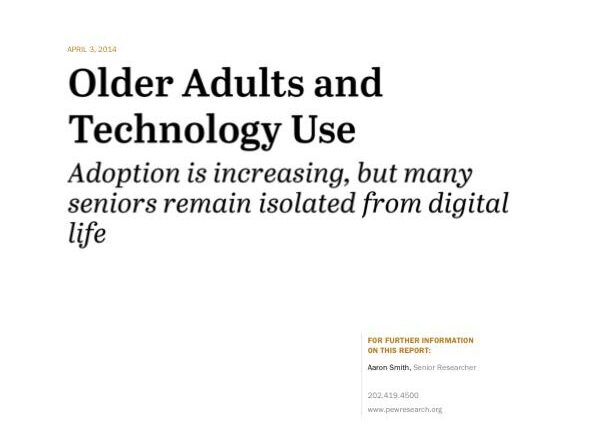Older Adults and Technology Use
By: Aaron Smith
America’s seniors have historically been late adopters to the world of technology compared to their
younger compatriots, but their movement into digital life continues to deepen, according to newly
released data from the Pew Research Center. In this report, we take advantage of a particularly
large survey to conduct a unique exploration not only of technology use between Americans ages
65 or older and the rest of the population, but within the senior population as well.
Two different groups of older Americans emerge. The first group (which leans toward younger,
more highly educated, or more affluent seniors) has relatively substantial technology assets, and
also has a positive view toward the benefits of online platforms. The other (which tends to be older
and less affluent, often with significant challenges with health or disability) is largely disconnected
from the world of digital tools and services, both physically and psychologically
Read book “here”











